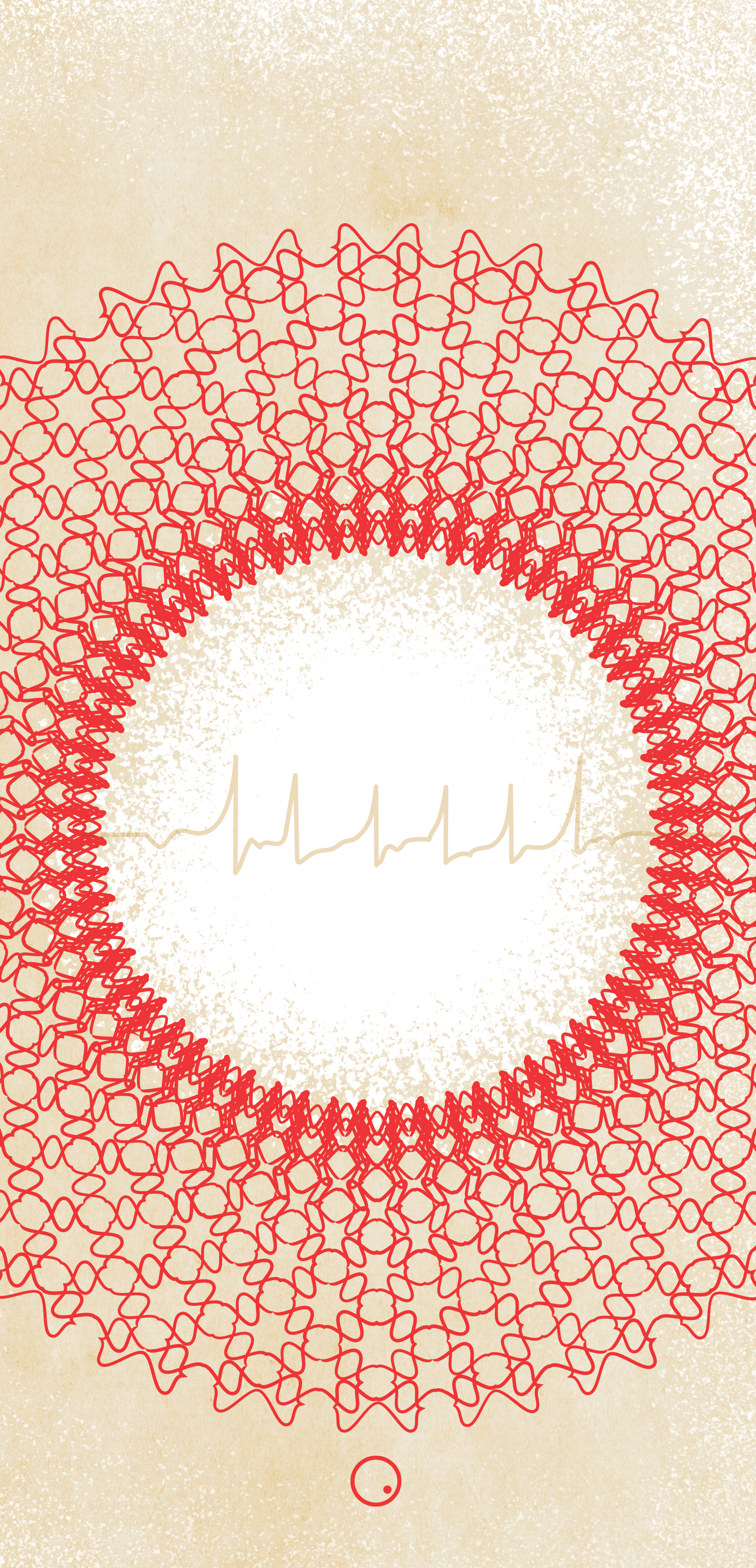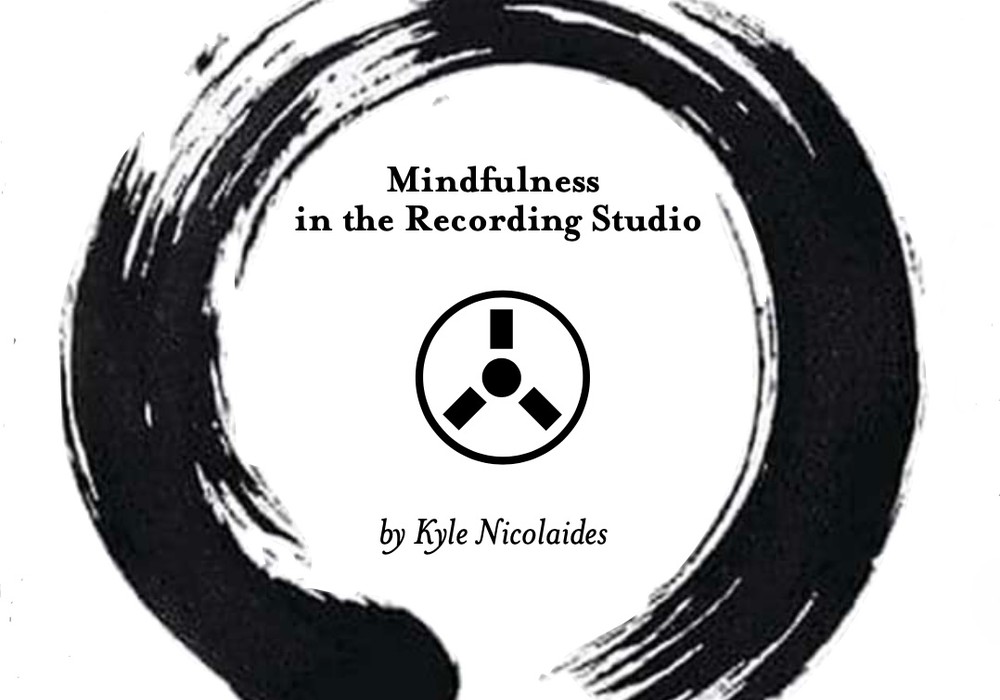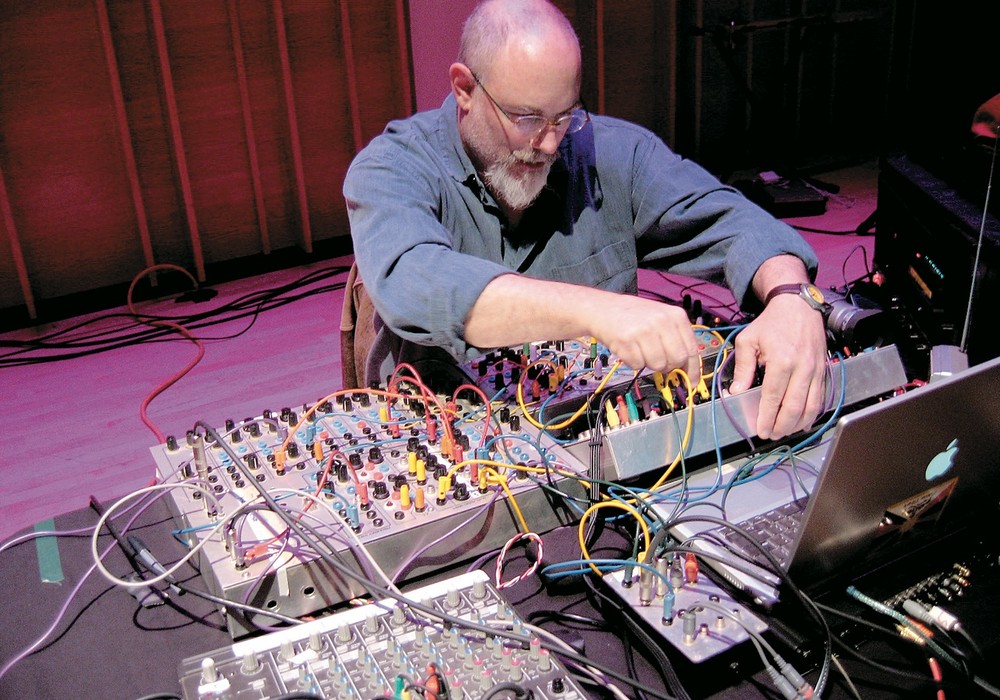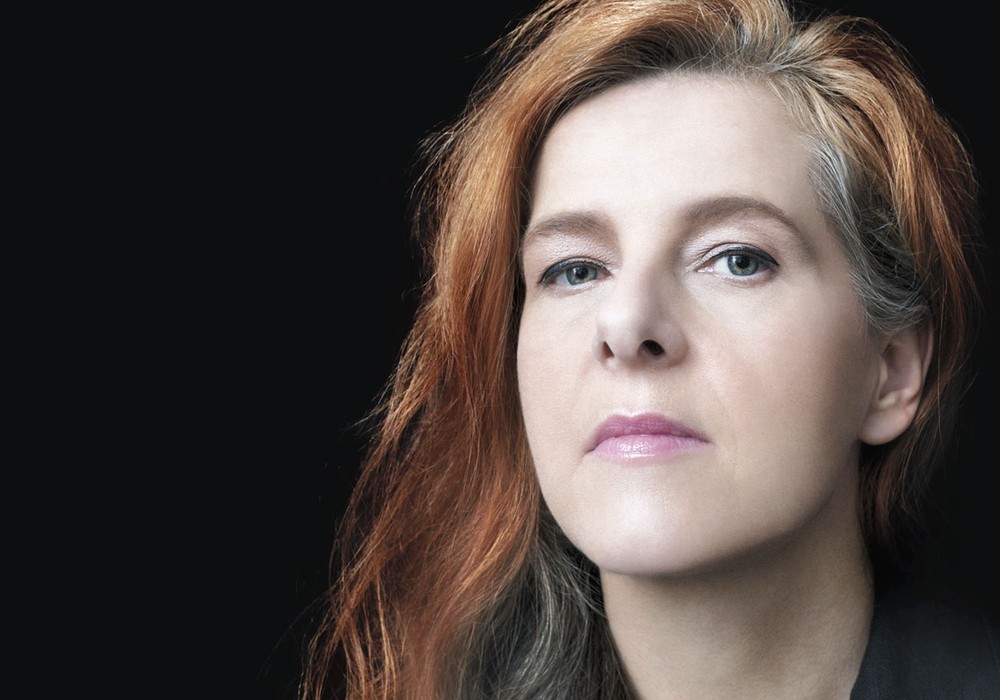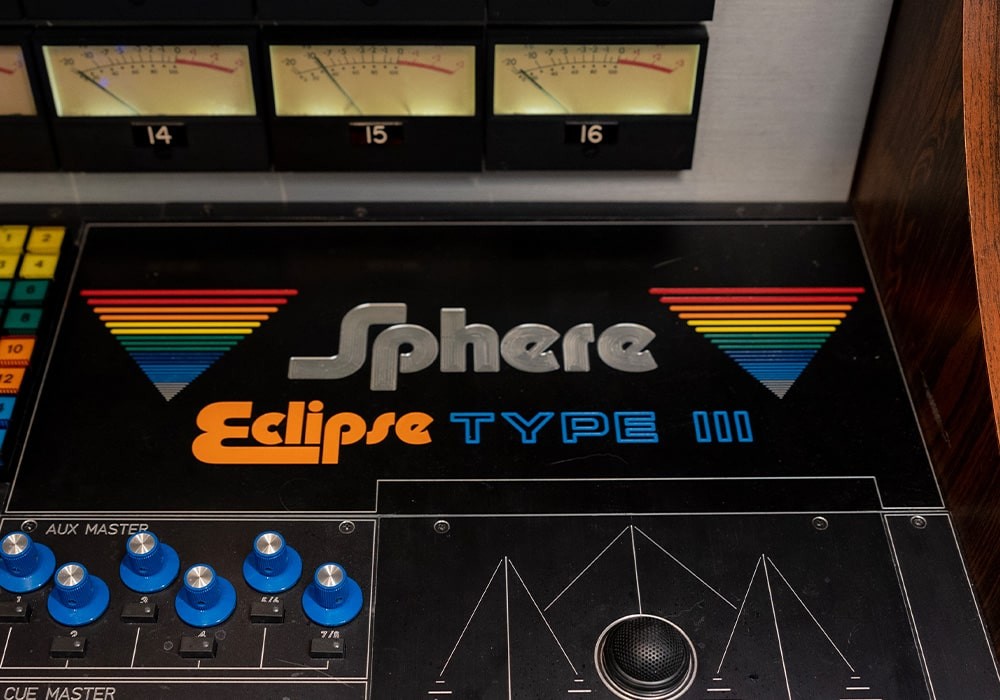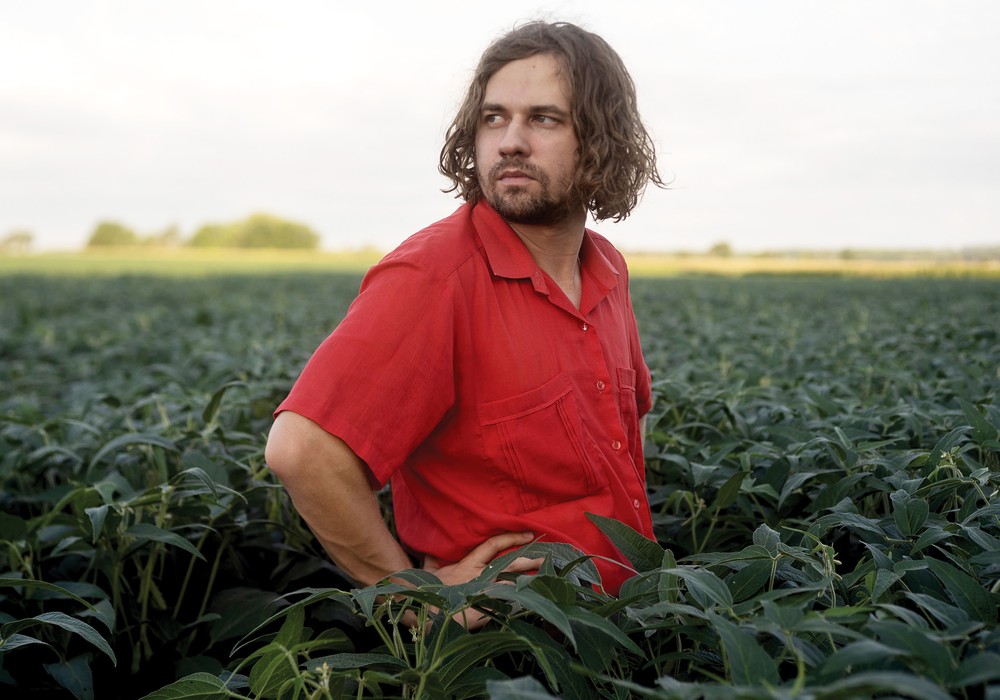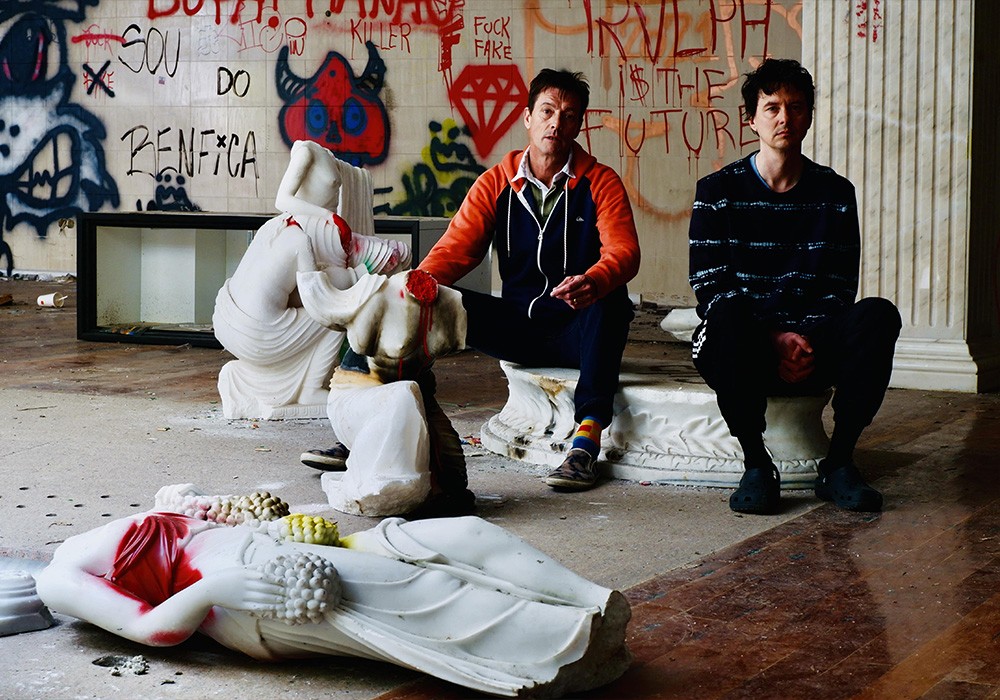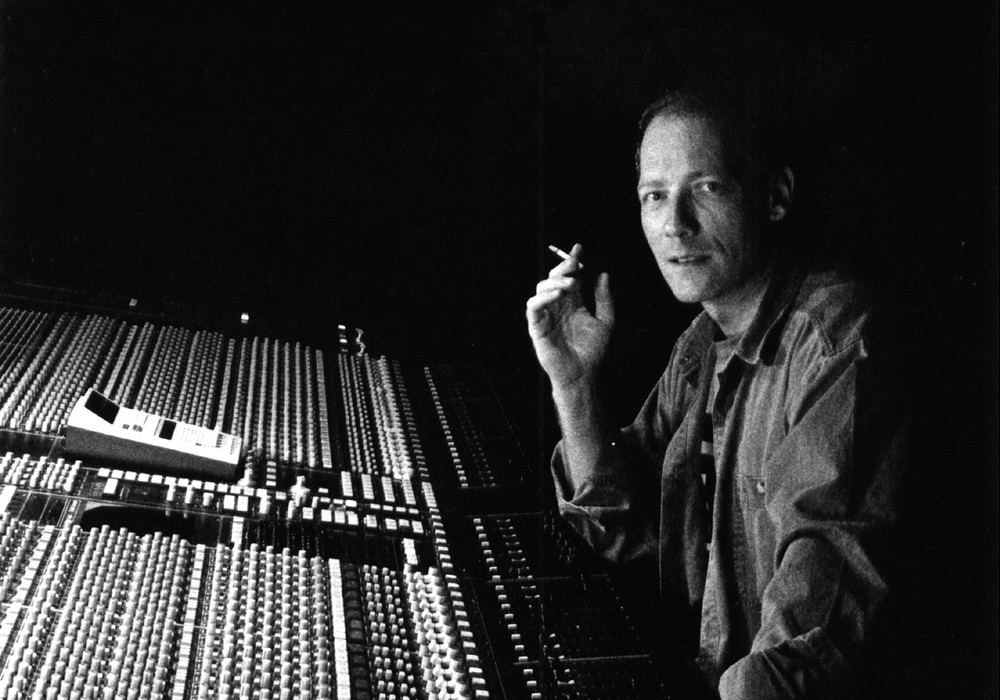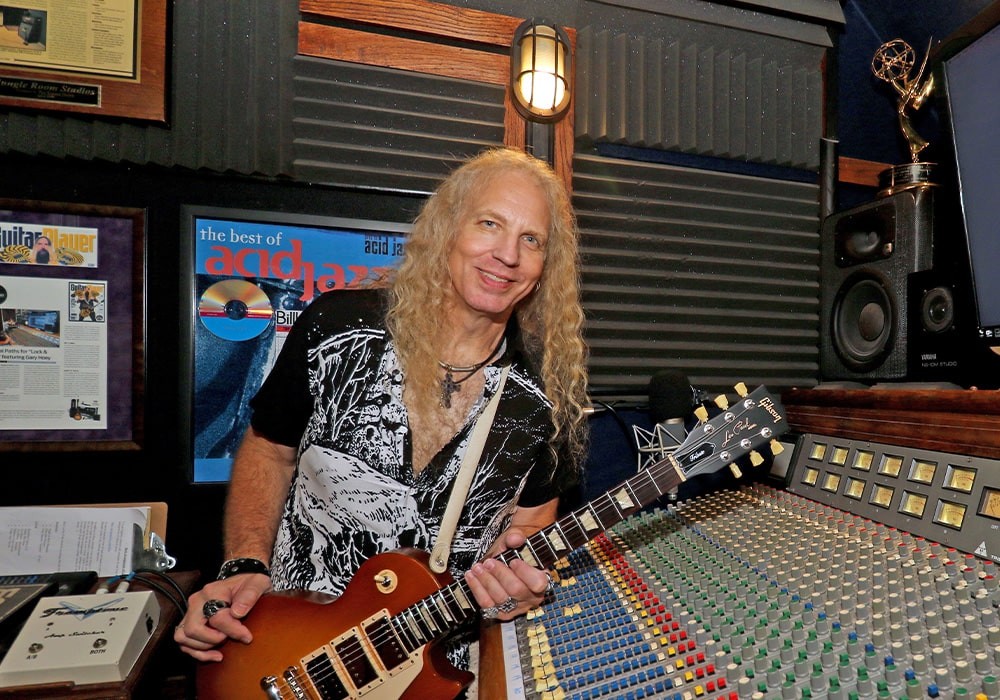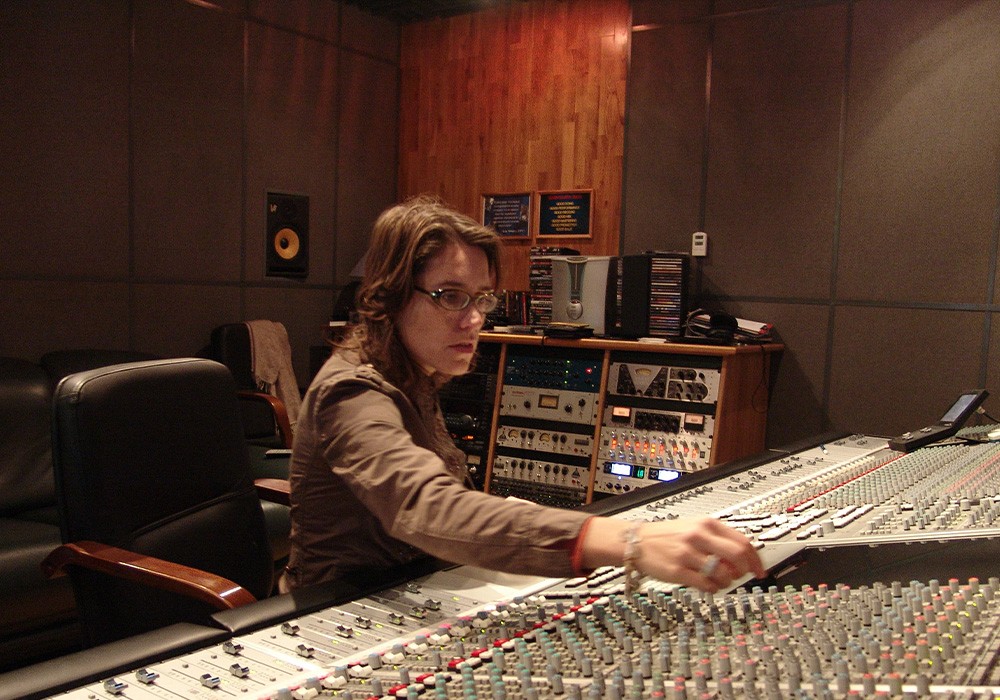Hey, wait a minute — weren't all the great records supposed to be recorded in somebody's bedroom by now? By people in their twenties, on cheap software, with consumer-level gear? Wasn't there supposed to be some kind of, you know, revolution? All right, maybe the news of the death of the studio was a bit premature. But as it happens, one of the best records of 2006 was recorded in a bedroom (and a shed), on cheap gear and home computers. It's Electric President's self-titled debut on Morr Music, a lush collection of deft pop songs wrapped in a mantle of hushed vocals, acoustic guitars, chopped-up beats, and murky drones. Singer/songwriter Ben Cooper lives in Jacksonville Beach, Florida, where he also records for Morr as a solo act under the name Radical Face. Bassist/guitarist Alex Kane lives down the road in Atlantic Beach. I stopped by Alex's place to talk to this soft-spoken duo, and to check out the bedroom where it all happened.
So. How'd you do it? Tubes?
BC: Tubes are overrated!
AK: We don't have any tubes, do we? Just the ART.
BC: I think one of my preamps has a tube that lights up, but I don't even know if audio goes through the tube... it just lights up.
AK: We have a tube mic, but we never use it.
What was the first thing you guys recorded on?
AK: A Yamaha Minidisc 4-track. I liked it.
BC: I didn't. But it worked.
AK: The reverb was always in the left ear, because we had a mono pedal that we ran everything through... and the returns were in stereo.
BC: We also used to mix in a stereo system that only had one working speaker. So we didn't pan, because we couldn't hear it. So everything was down the center except for the reverb, which was in the left ear. Everything was borrowed — the 4-track, a 58 that didn't have a grille... and then we borrowed a delay pedal. And after doing like, twenty songs, we realized we had to get our own stuff.
Let's talk about recording the album. There's very little gear in this room, but the album is full of sounds.
BC: It started simple... we'd been using Cool Edit for years, and then we got Reason... some people think Reason sounds like crap, but we don't really use the Reason sounds. Most of the drums on the record were made in this room or in my shed, hitting walls or dropping bags or pulling on tape... random sounds and textures. The drums on one song are all cracking knuckles. And we just cut them up and put them in Reason and sequenced them. There aren't a lot of actual drums on it — a few sampled snares and kicks. So Reason was a big thing... that's the synth.
AK: Everything's played on that.
With this M-Audio controller keyboard? Are the pianos in Reason?
AK: Yeah.
BC: We doctored them a lot in Cool Edit... they're compressed a lot.
The record is usually shelved in electronica, where I've seen it... but I think of it as essentially a guitar record. How are you recording the guitars?
BC: The only mics we used were...
AK: The Oktava MK319.
BC: Yeah, and the Rode NT1A. And the Beta 57.
AK: We used the ribbon mic on one song, the Nady. The acoustics were all the NT. And for electric guitars and bass, we used a direct signal out of the amp and the 57 on the speaker, and blended them.
BC: And then we messed with things on the computer. We went a little trigger-happy with the reverse stuff.
On "Hum", parts of the acoustic guitar seem to be reversed.
BC: That was just cutting out a chord, usually leading up to a change, and pasting it on another track on Cool Edit and reversing it, so that it sort of sucks backwards into the next chord.
Did you use a lot of EQ and compression?
AK: There's some compression on the drums and the bass DI. But all mics we usually leave wide open.
BC: I did some on the vocals, but I don't think there's any on the acoustic guitars.
BC: I don't have a loud voice, so that's sort of by default.
So that's it for gear?
BC: Pretty much. We used some pedals, the Boss DD-3.
AK: The EBow — that's on everything. I don't think there's a song without EBow. It wasn't intentional, but it's very exciting to play, putting it through pedals, reverb, distortion...
BC: It's the fun middle ground when you want something synthy.
AK: It makes you sound like Brian Eno!
So now you're supposed to be going on some kind of tour?
BC: We did shows around Florida with just a CD player, and it worked okay. I want to build helmets for the shows. I like headset mics, they're funny — but I want to build a helmet with metal arms coming off of it holding regular mics. And then I'll mount webcams onto the arms are well, to show my eyeballs or something. I don't know how hard this is going to be to construct. It might be hot.
You could put cooling fans on it.
BC: Actually, I have that glow-in-the-dark, black light, three color fan I could put that on there.
AK: Do it!
Seriously, it's kind of an important question. How do you put a laptop band on stage? How do you make it interesting to look at?
AK: I don't think we've succeeded yet.
BC: I don't either. I'm not that happy with the shows. People like them — or think we're on drugs. We get a lot of that. But I'd like to have more members and do a loud, trashy version of the album. And though people at shows generally hate that — they usually want to hear what's on the record played the same way — it's kind of boring to do.
If you're bored playing, fewer people will get excited about it.
BC: I'd like to build a bunch of weird videos to run, as a distraction. We'd also like to leave some dead spots to like, hump things or sword fight or whatever. We have a friend who's a stuntman, this guy Curtis, and he sets himself on fire. He'll do a front flip off the stage. We played this Florida music festival...
AK: We got an award for that — Most Bizarre Act.
BC: ... and he played a zombie that could pop and lock, and built himself a fake stomach filled with Jell-o and gummi worms, and at one point he punched his stomach out and ate it. And I would absolutely tour with an air drummer. But it does need some level of improvisation to stay interesting. It's easy to fall into a routine and lose interest in playing it. And I'd feel bad charging someone to see that.
So what's next?
BC: We're doing an EP of one song that travels from the bottom of the ocean up to the sun. And we have these five or six songs that don't really fit together, and might just make another EP.
And you have another EP coming out, right?
BC: It's coming out in 7" form, two 7"s. It should be going to press in the next week or so. Those are from six months before we started the record, I think.
AK: It was right when we got Reason, and we just made some dance songs.
BC: Right, some songs we could play live — that was the whole point. We thought it was dance music at the time. We learned a lot about recording — the songs were very complicated. We wanted to pretend we were a band, so we came up with five members, a drummer, guitar player, bassist, keyboardist, and vocalist/guitarist.
AK: We couldn't have any more than those instruments at a time.
BC: Yeah, so we tried to make it as if this was a band. Because it's easy on a computer to just keep going — just to add five more instruments. That's my favorite way to work, personally, but it was fun to work with that restraint for a little while. You know — we only have one guitar, so it's got to sound good. We learned a lot about mic placement. From that point on, we had the same gear for like three years, but we started to figure out what worked and what didn't. We didn't really have any money, so we just figured, there has to be a way to get a better sound out of this mic... move to a different room, try it with a pad. We did a lot of tests and shootouts, like that the NT1 is really bright, but it sounds good on banjo. You'd think, "It's already bright, the banjo's bright, there'll be a bunch of annoying transients — it's going to be piercing." But it works better than all the other mics.
Ben, you're doing a Radical Face record now. Are you employing lessons you learned recording the Electric President album?
BC: I'm familiar with the gear, so there's a lot less time spent trying to get a good sound. I know what the gear's going to give me now. So it's less about how to get a sound that works, and a lot more about what sound to use.
Any secret tricks for the Tape Oppers?
AK: Soft picks on acoustic guitars.
Did you ever have a piece of gear that fixed a huge problem?
AK: EBow fixed boredom!
